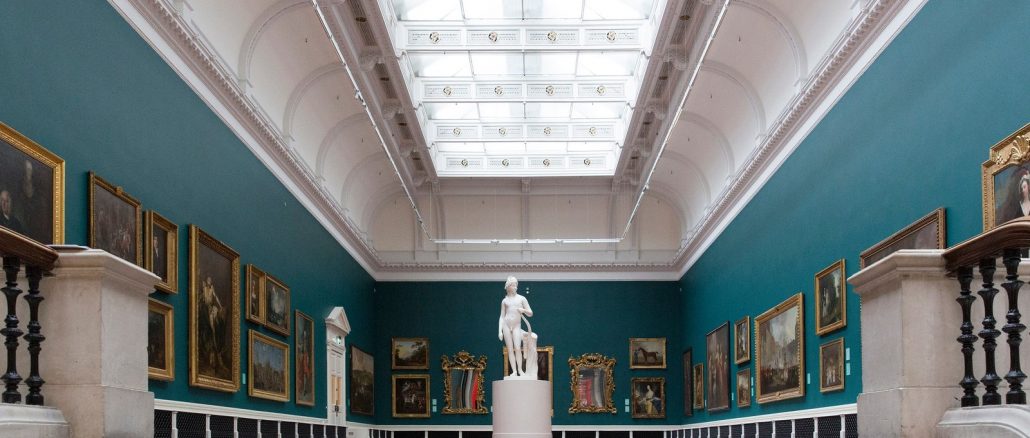
The National Gallery of Ireland (NGI), located in Merrion Square, Dublin has awarded a catering contract to the American Company, Aramark, for a three-year term. Aramark has gained controversy in recent years as it was revealed that they profit from Direct Provision in Ireland, which many find unacceptable.
According to the End Direct Provision Action Group, “Aramark are responsible for the day-to-day running of three direct provision centres, and so are responsible for the day-to-day abuse, malpractice and rights violations seen in Direct Provision Centres”. The action group also notes that many asylum seeker residents have gone on hunger strikes to protest the “horrible non-nutritional food and conditions these companies put them through for years”. This was also reported in an Irish Times article, published in 2014, by Carl O’Brien. The USI and multiple universities have supported the boycott of Aramark.
The staff at the National Gallery of Ireland and multiple artists also expressed their concern with the Aramark contract. In a letter written by artist Emma Roche, it states “Direct provision is the greatest failing of our government today. Those who profit from it and support it should have no place at our National Gallery. It is unacceptable, deeply saddening and undermines the great work you have done as an institution. As current Zurich portrait prize exhibitors we are asking that this decision is reversed”.
According to The Times, two artists: Brian Teeling and Emma Roche, have removed their work from an exhibition at the NGI in protest over Aramark and artists Salvatore of Lucan and Jonathan Mayhew also signed the email criticising the NGI’s decision, which was written by Roche and Teeling.
On the 25th of February a protest was organised outside the NGI by the End Direct Provision Action Group, supported by People Before Profit, Le Chéile and Quality Matters, which attracted over 200 people. The College View, spoke to Paula Martinez, who was one of the organisers of the protest, “My name is Paula Martinez I am a master’s student at UCD on migration and a migrant myself coming from South America. I often talk about how difficult it is for migrants to exist in Ireland as being such an expensive country it is exceedingly difficult to enjoy life and create and be part of something else that is not working to pay the rent. In many capitals usually there is a lot of free workshops and events to participate more around the arts”.
“Here in Ireland, there is not much. The only thing that I often did was going to the National Gallery as it’s free. And as many of my Irish friends have said ‘one of the only places where you can do something cultural for free’. Now everyone I know, and I look up hates Direct Provision and is actively against it as a system. As a migrant I know there is NO difference between refugees and me except I have economic privilege and they have gone through so much worse. I have studied and written about Direct Provision for the past two years, it is horrifying and unacceptable what Ireland believes is okay to do to their refugee community compared to so many countries having even less economic possibilities than Ireland”.
“For the National Gallery of Ireland to think that it is acceptable to support the company who profits about mass incarceration in the US and Direct Provision, and that keeps Direct Provision in place is outrageous. How the Gallery responded to Brian Teeling and Emma Roche protest on taking out their work is also outrageous, the responses that the National Gallery has been giving to people emailing them are also outrageous. In a moment in time where art houses and cultural places are trying to diversify and bring in other communities how can the Irish National Gallery be acting this way?”
Another protest was organised on the 28th of February outside of the NGI by Gabi Fullam of Trinity College’s Student Union. The protest was labelled “Art should not exploit” and it was supported by the USI.
Christine O’Mahony
Image credit: RTE



